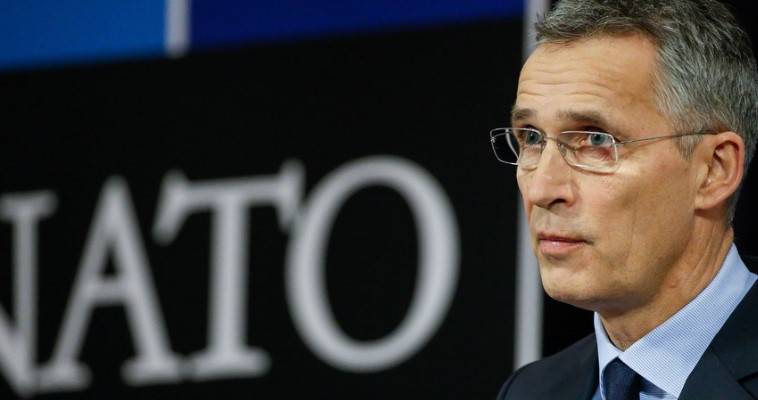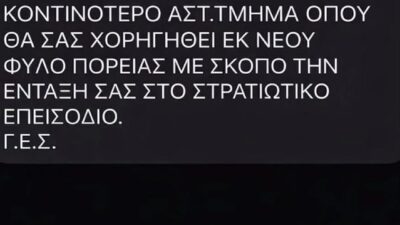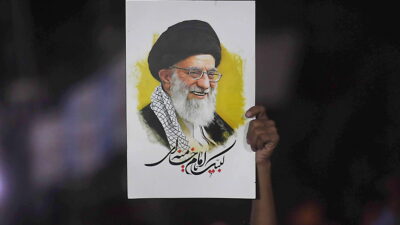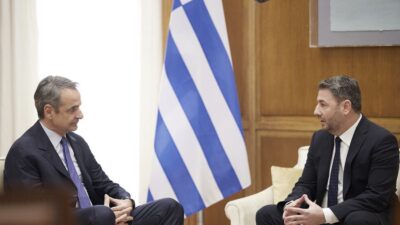Zacharias Michas: Orchestrated western pressure for Athens-Ankara negotiations
02/07/2020
Following the de-escalation brought on by the Mitsotakis – Erdogan communication initiative, there seems to be a diplomatic background to preventing a conflict between the two NATO member states. Information and indications are that there is strong pressure on Athens to sit down at the negotiating table with Turkey, seeking a compromise that will prevent further escalation and a possible military confrontation.
At this level, the views of the United States and Greece are identical. Greece is ready for reasonable solutions based on international law. Even any “maximalism” at the level of public opinion is generally dictated by Turkey’s out-of-bounds aggressive rhetoric and systematic disregard for international law.
The situation in the diplomatic field seems extremely pressing. Greece may identify with the United States in its choice of peaceful means for resolving disputes, but the framework created by Turkish rhetoric and practice undermines the possibility of a solution. The Americans are well aware of the expansionist claims of the Turks to the detriment of Greece and the Republic of Cyprus, which in Ankara they consider to be the main geographical obstacle to furthering their neo-Ottoman megalomania.
The fact that the Americans know this does not mean that they want to find a fair way to overcome the Greek-Turkish conflict. Their own strategic priorities are mainly to compete with China and Russia. In short, what constitutes a strategic threat to Greece is a tactical issue for the United States. It is a local hurdle in trying to tackle the geostrategic challenge emanating from Russia and China. Of course, NATO has the same view.
The Alliance is supposed to protect Member States from outside malice. In the case of Greece and Turkey, however, the dispute is internal. NATO has traditionally been moving behind the scenes to defuse tensions on the Greek-Turkish front before they become a deterrent to its sensitive southeastern wing.
The greatest strategic importance that the West traditionally attaches to Turkey in relation to that of Greece, was also reflected in the methods of mediation. NATO knew that Turkey was making the most of its geostrategic importance. More specifically, it sought to extract the greatest rewards, even with anti-allied methods and indirect blackmail.
For its part, Greece was loyal and disciplined to a degree of misunderstanding. It often undermined its national interest in serving as an ally. This practice also partially reflected the fictitious illusion cultivated within the country that participation in NATO and the EU is a form of guaranteeing national security.
Trump’s self-serving pro-Turkish stance
Greece is in the same situation today. Turkey is showing unprecedented aggression. The excellent US-Greek relations, due to Greece satisfying all American demands, do not seem to have changed Washington’s priorities. Although the climate has shifted for the Erdogan regime, the doctrine of Turkey’s irreplaceable strategic importance remains alive.
President Trump’s selfish pro-Turkishness, in fact, balances the anti-Erdogan climate in American decision making circles, with the result that Greece gains nothing. Ankara continues to successfully manipulate US policy in the region, playing with the United States, Russia and China. In essence, the Americans hope that when Erdogan is removed from power, in whatever way, Turkey will return to the “western corral”, even in return.
The Turks are “peddling” to the Americans the idea that in Libya they must be supported by the West, because they are acting as a bulwark against the possibility that this country will fall under the influence of Russia, which may gain a second base in the Mediterranean, beyond the one in Tartus, Syria.
Of course, the truth is completely different. The Turks are working to make their neo-Ottoman vision a reality. They seek to gain control of Libya, and, of course, privileged access to its oil and privileged contracts in its reconstruction projects. In addition, they will be able to blackmail Europe by controlling migration flows from Africa.
At the same time, the Greek government is proposing that it be fully aligned with US interests. There are rumors that the approach of Haftar and the Libyan Parliament was wrong, as if it is not the government of Tripoli that not only functions as an instrument of Ankara, but also usurps the Greek EEZ with the well-known illegal memorandum.
We are approaching the edges of irrationality. Based on its behavior, Turkey should have even been excluded from the Atlantic Alliance. However, it is considered a strategic arm in the unrealistic pursuit of Russia’s exclusion from Libya, forgetting the Ankara-Moscow strategic relationship, which we saw not only through the procurement of S-400 missiles, but also in Syria. Turkey and NATO have forgotten about the Turkish attack on the Kurds, the most loyal allies of the United States in the war against the Islamic State.
Negotiation after pressure
Based on Turkey’s behavior so far, it is reasonable to assume that pressure will be brought on Greece in order to reach a compromise for the “good of the alliance”, which will result from Greek concessions. There are strong indications for this. Public figures have raised the flag of peaceful settlement with Turkey, but without setting clear boundaries regarding Greek concessions.
Let’s not forget that Turkey also claims (inhabited) Greek islands. A referral to The Hague without Ankara giving up this arbitrary expansionist claim does not make sense, unless some people think it does. Will the territorial integrity of Greece be put to the judgment of the International Court of Justice?
The same people, who in the past supported the reduction of defense expenditures, today use the argument of the supposed military lag of Greece to convince the public that Greece must make concessions towards a strong Turkey! These are precisely the same people who refuse to understand that regardless of personal preferences, it would be self-destructive for Greece not to include Russia and China in its policy. These two great powers, moreover, do not question its sovereign rights.
But how is it possible to serve two masters? How can Greece align with the Sarraj government in Libya , that is, with Turkey, as they indirectly but clearly suggest? Don’t they see that France is also governed by its own interests, not by those of the Americans and NATO?
Turkey is pursuing its national goals, trying to align them with US and NATO goals wherever possible. Turkey found a chance in Libya and did not let it slip by. But whenever its interests run counter to those of the United States and NATO, it does not hesitate to diverge. Let this be a lesson for the well-known circles in Athens.





